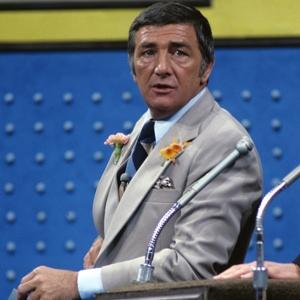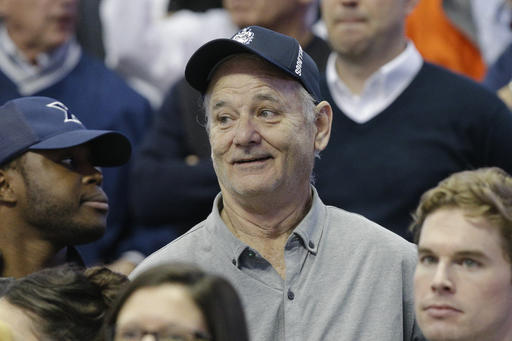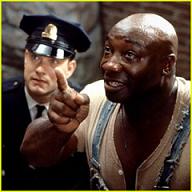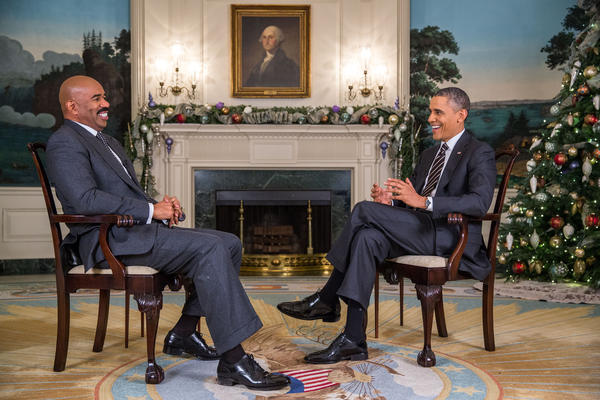
NEW YORK – (AP) Richard Dawson brought a saucy, unabashedly touchy-feely style to TV game shows as host of “Family Feud.”
The British-born entertainer, who died Saturday at age 79 from complications related to esophageal cancer at Ronald Reagan UCLA Medical Center in Los Angeles, earlier had made his mark in the unlikely 1960s sitcom hit “Hogan’s Heroes,” which mined laughs from a Nazi POW camp whose prisoners hoodwink their captors and run the place themselves.
But it is as the kissing, wisecracking quizmaster of “Feud” that he will be remembered.
The show, which initially ran from 1976 to 1985, pitted a pair of families against each other as they tried to guess the most popular answers to poll questions such as “What do people give up when they go on a diet?”
Dawson made his hearty, soaring pronouncement of the phrase “Survey says…” a national catchphrase among the show’s fans.
He won a daytime Emmy Award in 1978 as best game show host. Tom Shales of The Washington Post called him “the fastest, brightest and most beguilingly caustic interlocutor since the late great Groucho bantered and parried on `You Bet Your Life.”’ The show was so popular it was released as both daytime and syndicated evening versions.
And it was quickly validated by “Saturday Night Live,” with Bill Murray in a satirical homage to Dawson as a leering, nasty figure who even slapped one contestant (John Belushi) for getting too fresh.
Not that everyone approved.
In his classic 1981 cultural analysis “Within the Context of No Context,” George W.S. Trow identified “the important moment in the history of television” as the moment when Dawson asked his contestants “to guess what a poll of 100 people had guessed would be the height of the average American woman.
“Guess what they’ve guessed,” sniffed Trow, harping on the meaninglessness of such an enterprise. “Guess what they’ve guessed the AVERAGE is.”
Obviously, “Feud” fans would have feuded with Trow’s dismissive attitude.
For one thing, Dawson played the show, and his duties presiding over it, for laughs.
On one episode, he posed this question to a contestant: “During what month of pregnancy does a woman begin to look pregnant?”
She blurted out “September,” then, too late, realized this was a ridiculous response.
All the better for Dawson, who couldn’t stop laughing – or milking the moment for continued laughs from the audience.
His swaggering, randy manner (and working-bloke’s British accent) set him apart from other TV quizmasters, who, more often than not, tempered any boisterous inclinations with defiant smoothness. Not Dawson, who was overtly physical, prone to invading his contestants’ personal space – and especially the women, each of whom he kissed without exception.
At the time the show bowed out in 1985, executive producer Howard Felsher estimated that Dawson had kissed “somewhere in the vicinity of 20,000.”
“I kissed them for luck and love, that’s all,” Dawson said at the time.
One of them he kissed was Gretchen Johnson, an attractive young contestant who came on with members of her family in 1981. She and Dawson began dating, and, after a decade together, they wed in 1991. (Dawson is survived by Gretchen and their daughter Shannon, as well as two sons, Mark and Gary, from his first marriage, and four grandchildren.)
“Wheel of Fortune” host Pat Sajak said Dawson’s greatest role was playing a game show host.
“He was able to inject his unique brand of humor into shows like “Family Feud,” Sajak said. “He could be funny and biting, mischievous and playful, but he always respected the game and treated his players with kindness.”
Producers revived the show as “The New Family Feud,” starring comedian Ray Combs, in 1988. Six years later, Dawson replaced Combs at the helm, but that lasted only one season. Steve Harvey is the current host.
Dawson reprised his game show character in a much darker mood in the 1987 Arnold Schwarzenegger film “The Running Man,” playing the host of a deadly TV show set in a totalitarian future, where convicts try to escape as their executioners stalk them.
But long before “Feud,” Dawson had gained fame as the fast-talking Cpl. Peter Newkirk on “Hogan’s Heroes,” the CBS comedy starring Bob Crane set in World War II. The show made the ratings top 10 in its first season, 1965-66, and aired until 1971.
“We ran six years,” Dawson once quipped, “a year longer than Hitler.”
Dawson was born Colin Lionel Emm in 1932 in Gosport, England. When he was 14 he joined the Merchant Marines, serving three years.
He first got into show business as a standup comedian, playing clubs in London’s West End including the legendary Stork Room. It was there, in the late 1950s, he met blond bombshell Diana Dors, the film star who became known as Britain’s answer to Marilyn Monroe. They married in 1959 and divorced a decade later.
Dawson landed roles in U.S. comedy and variety shows in the early 1960s, including “The Steve Allen Show” and “The Dick Van Dyke Show.” Then his performance as a military prisoner in the 1965 film “King Rat” led to his being cast in “Hogan’s Heroes,” which truly made him a star to American audiences.
After that, he was a regular on “Rowan & Martin’s Laugh-In” and “The New Dick Van Dyke Show.”
Meanwhile, he became a frequent celebrity contestant on game shows, including both daytime and prime-time versions of “The Match Game.”
While still a panelist on “The Match Game,” he began on “Family Feud,” where his popularity grew to such levels that he was mentioned as a front-runner to win the “Tonight Show” host chair as successor to Johnny Carson, who at the time was considering retirement. Though Carson stayed put, Dawson logged appearances as a guest host.
In 1985, on Dawson ended that lengthy “Family Feud” run, the studio audience honored him with a standing ovation, and he responded: “Please sit down. I have to do at least 30 minutes of fun and laughter, and you make me want to cry.”
“I’ve had the most incredible luck in my career,” he told his viewers, adding, “I never dreamed I would have a job in which so many people could touch me and I could touch them.”
That triggered a laugh, as he must have known it would: a host who was both a lover and a jokester.




Be the first to comment